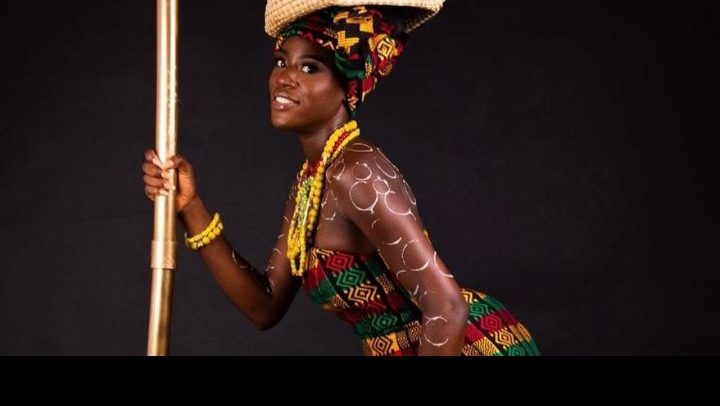Ghana’s representative at the prestigious Miss World pageant in India, Miriam Xorlasi, captivated audience with a stunning display of Ewe culture during the pageant’s opening ceremony on Tuesday.
Broadcast live on missworld.com on the evening of February 20th, the opening ceremony marked the beginni ng of the highly anticipated 71st Miss World Global Finale, scheduled to take place at the Jio World Convention Centre in Mumbai on March 9.
With 120 contestants from nations worldwide participating, the event showcases diverse competitions and charitable endeavours, embodying the role of change ambassadors.
Miss Ghana, Miriam Xorlasi, made a striking entrance at the opening ceremony, adorned in Ghana’s national costume that pays homage to the rich heritage of the Ewe people.
The costume honours the story of the Ewe people’s migration, originating from Notsie in the Republic of Togo. It symbolizes their ingenious escape from the oppressive rule of King Agorkorli, as they weaken the walls of their confinement by continuously applying water from their household chores, eventually facilitating their escape.
In a strategic move to mislead the king and elders, the fleeing Ewe people executed their march backwards, creating the illusion that they were approaching Notsie rather than escaping from it.
Miriam, on stage also explored the Misego or Husago dance which, predominantly performed by women, particularly young ones, serves to reenact this historical event to this day.
Miriam Xorlasi’s costume features handwoven Ewe Kete fabric from Agotime Kpetoe in the Volta region, showcasing the craftsmanship and artistry of the Ewe people.
The headpiece, known as the Kevi, symbolizes the method by which the ancestors carried their possessions, balanced atop their heads, while the staff represents the support given to the elderly women who spearheaded the march. The costume’s exaggerated back depicts how the women carried their families’ worn clothes until they reached the next water source, a testament to their resilience and ingenuity.
Through her captivating performance and representation of Ewe culture, Miriam Xorlasi has not only showcased Ghana’s rich heritage but also celebrated the resilience and ingenuity of the Ewe people on the global stage of Miss World. Her stunning display serves as a reminder of the importance of preserving and honoring cultural traditions in today’s interconnected world.
By Francis Addo


